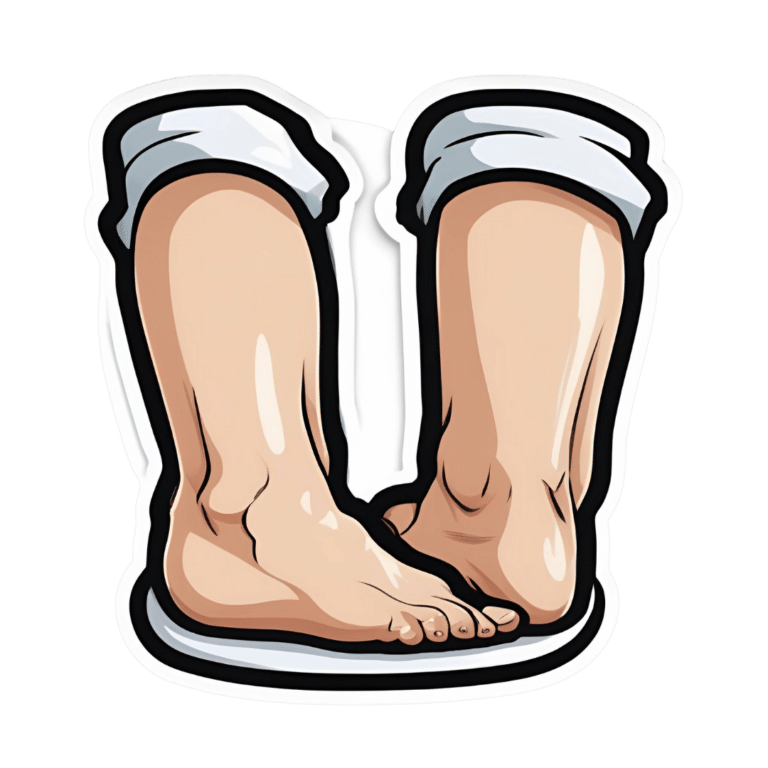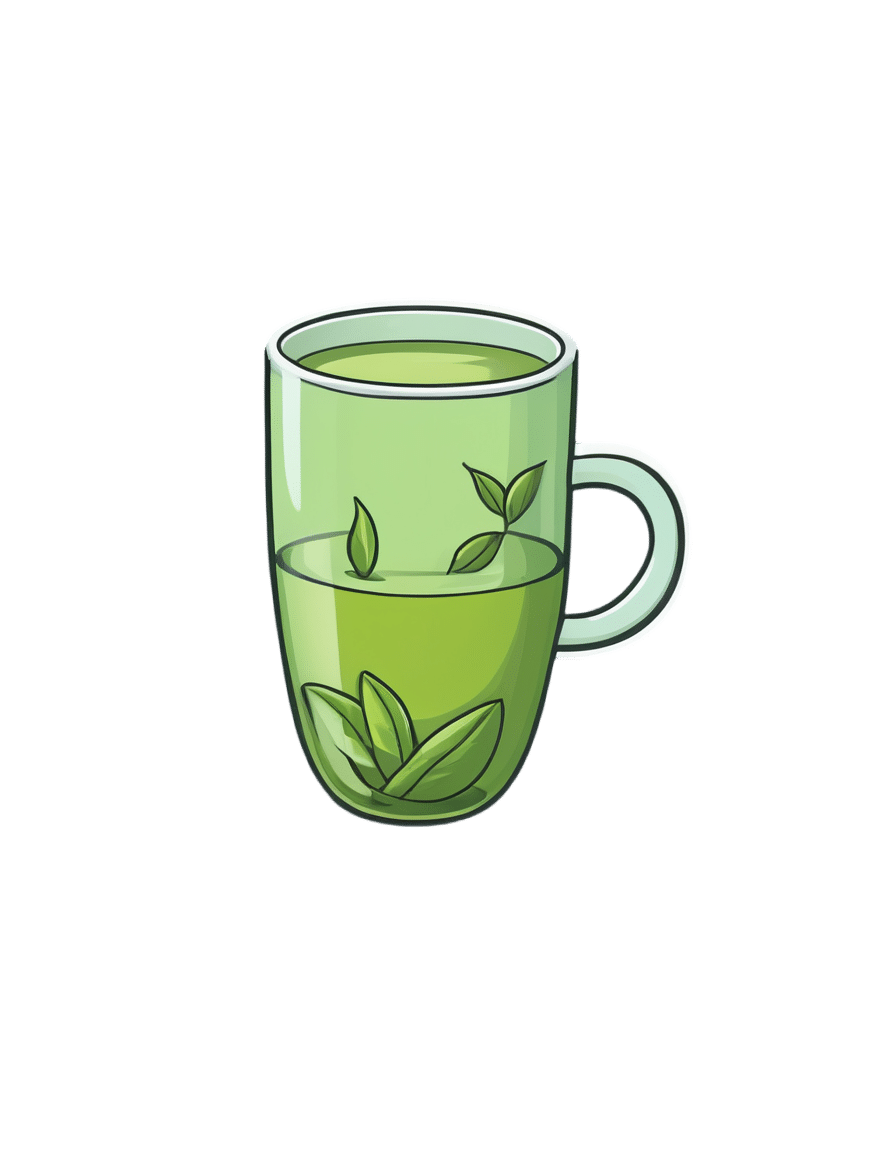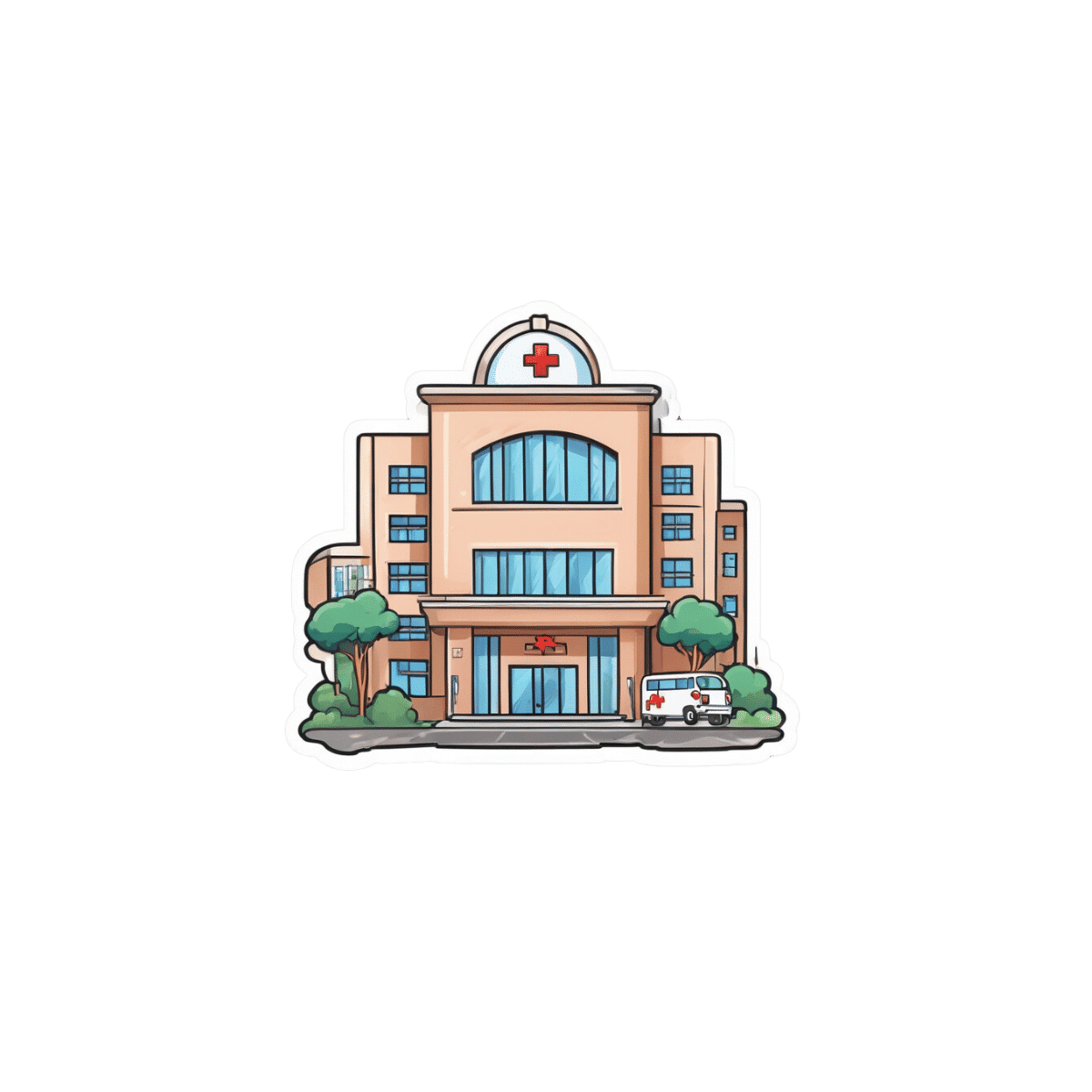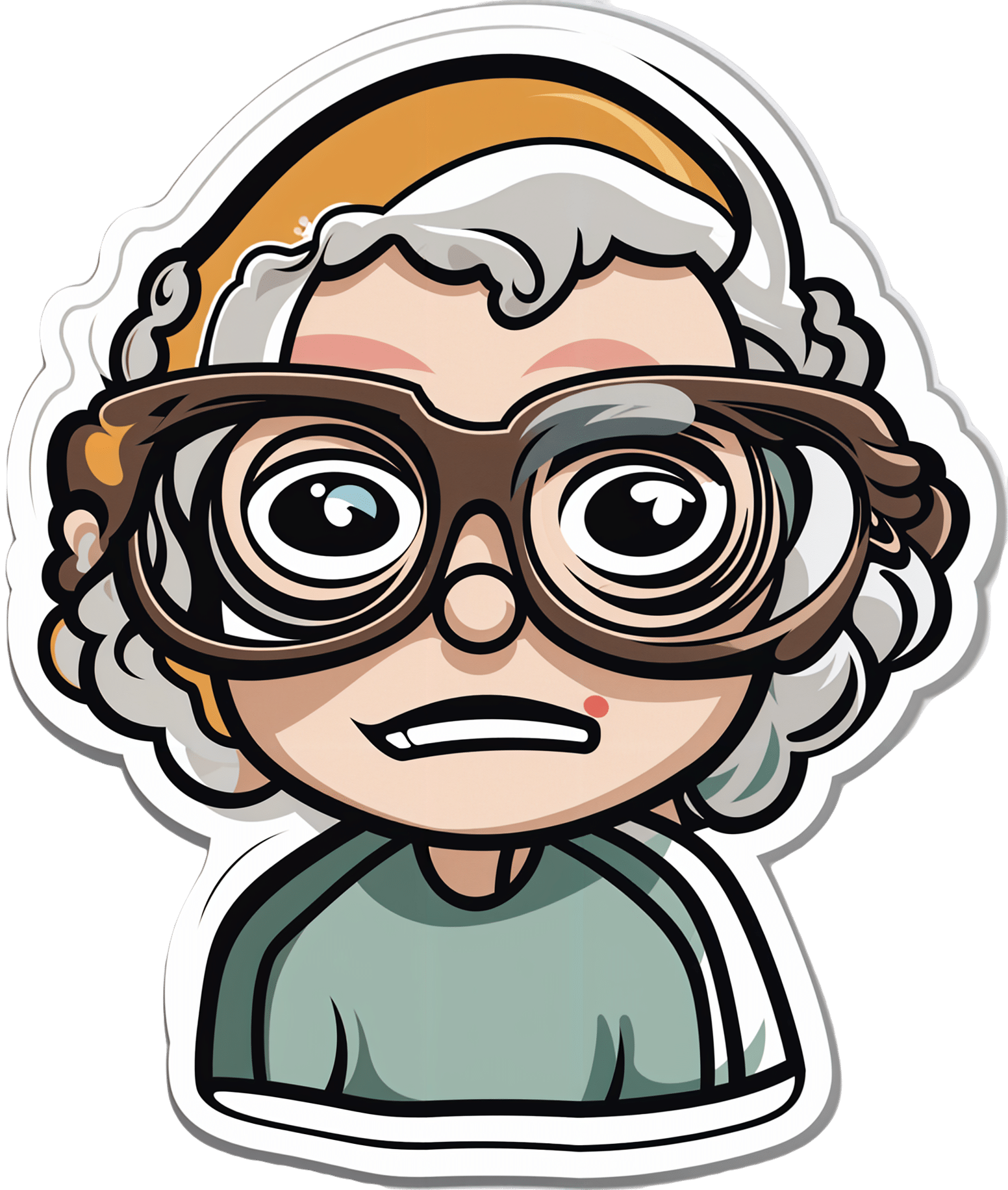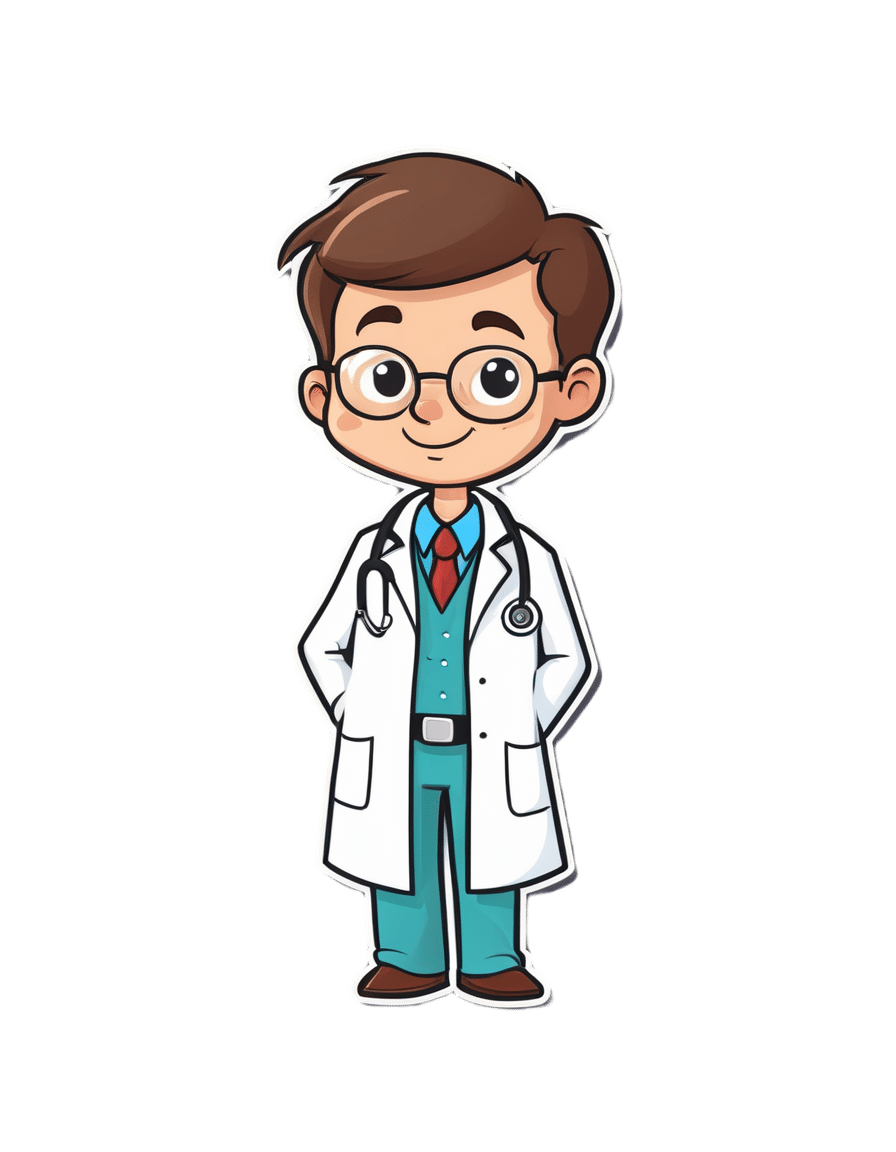
“Why Does It Hurt When I Have Sex?” (And What To Do About It)
10almonds is reader-supported. We may, at no cost to you, receive a portion of sales if you purchase a product through a link in this article.
This is one that affects mostly women, with 43% of American women reporting such issues at some point. There’s a distribution curve to this, with higher incidence in younger and older women; younger while first figuring things out, and older with menopause-related body changes. But, it can happen at any time (and often not for obvious reasons!), so here’s what OB/GYN Dr. Jennifer Lincoln advises:
Many possibilities, but easily narrowed down
Common causes include:
- vaginal dryness, which itself can have many causes (half of which are “low estrogen levels” for various different reasons)
- muscular issues, which can be in response to anxiety, pain, and occur as a result of pelvic floor muscle tightening
- vulvar issues, ranging from skin disorders (e.g. lichen sclerosis or lichen planus) to nerve disorders (e.g. vestibulitis or vestibulodynia)
- uterine issues, including endometriosis, fibroids, or scar tissue if you had a surgery
- infections, of the STI variety, but bear in mind that some STIs such as herpes do not necessarily require direct sexual contact per se, and yeast infections definitely don’t. Some STIs are more serious than others, so getting things checked out is a good idea (don’t worry, clinics are discreet about this sort of thing)
- bowel issues, notwithstanding that we have been talking about vaginal sex here, it can’t be happy if its anatomical neighbors aren’t happy—so things like IBS, Crohn’s, or even just constipation, aren’t irrelevant
- trauma, of various kinds, affecting sexual experiences
That’s a lot of possibilities, so if there’s not something standing out as “yes, now that you mention it, it’s obviously that”, Dr. Lincoln recommends a full health evaluation and examination of medical history, as well as a targeted physical exam. That may not be fun, but at least, once it’s done, it’s done.
Treatments vary depending on the cause, of course, and there are many kinds of physical and psychological therapies, as well as surgeries for the uterine issues we mentioned.
Happily, many of the above things can be addressed with simpler and less invasive methods, including learning more about the relevant anatomy and physiology and how to use it (be not ashamed; most people never got meaningful education about this!)*, vulvar skin care (“gentle” is the watchword here), the difference a good lube can make, and estrogen supplementation—which if you’re not up for general HRT, can be a topical estrogen cream that alleviates sexual function issues without raising blood serum estradiol levels.
*10almonds tip: check out the recommended book “Come As You Are” in our links below; it has 400 pages of stuff most people never knew about anatomy and physiology down there; you can thank us later!
Meanwhile, for more on each of these, enjoy:
Click Here If The Embedded Video Doesn’t Load Automatically!
Want to learn more?
You might also like to read:
- Water-based Lubricant vs Silicon-based Lubricant – Which is Healthier? (counterintuitively, it’s the silicon! But do give it a quick read, because here be science)
- How To Avoid Urinary Tract Infections (may be relevant; always good to know)
- Come As You Are – by Dr. Emily Nagoski (book; if we could only recommend one book on responsible vagina ownership, this would be the one)
Take care!
Don’t Forget…
Did you arrive here from our newsletter? Don’t forget to return to the email to continue learning!
Recommended
Learn to Age Gracefully
Join the 98k+ American women taking control of their health & aging with our 100% free (and fun!) daily emails:
-
Green Tea Allergies and Capsules
10almonds is reader-supported. We may, at no cost to you, receive a portion of sales if you purchase a product through a link in this article.
It’s Q&A Day at 10almonds!
Have a question or a request? You can always hit “reply” to any of our emails, or use the feedback widget at the bottom!
In cases where we’ve already covered something, we might link to what we wrote before, but will always be happy to revisit any of our topics again in the future too—there’s always more to say!
As ever: if the question/request can be answered briefly, we’ll do it here in our Q&A Thursday edition. If not, we’ll make a main feature of it shortly afterwards!
So, no question/request too big or small
❝Hey Sheila – As always, your articles are superb !! So, I have a topic that I’d love you guys to discuss: green tea. I used to try + drink it years ago but I always got an allergic reaction to it. So the question I’d like answered is: Will I still get the same allergic reaction if I take the capsules ? Also, because it’s caffeinated, will taking it interfere with iron pills, other vitamins + meds ? I read that the health benefits of the decaffeinated tea/capsules are not as great as the caffeinated. Any info would be greatly appreciated !! Thanks much !!❞
Hi! I’m not Sheila, but I’ll answer this one in the first person as I’ve had a similar issue:
I found long ago that taking any kind of tea (not herbal infusions, but true teas, e.g. green tea, black tea, red tea, etc) on an empty stomach made me want to throw up. The feeling would subside within about half an hour, but I learned it was far better to circumvent it by just not taking tea on an empty stomach.
However! I take an l-theanine supplement when I wake up, to complement my morning coffee, and have never had a problem with that. Of course, my physiology is not your physiology, and this “shouldn’t” be happening to either of us in the first place, so it’s not something there’s a lot of scientific literature about, and we just have to figure out what works for us.
This last Monday I wrote (inspired in part by your query) about l-theanine supplementation, and how it doesn’t require caffeine to unlock its benefits after all, by the way. So that’s that part in order.
I can’t speak for interactions with your other supplements or medications without knowing what they are, but I’m not aware of any known issue, beyond that l-theanine will tend to give a gentler curve to the expression of some neurotransmitters. So, if for example you’re talking anything that affects that (e.g. antidepressants, antipsychotics, ADHD meds, sleepy/wakefulness meds, etc) then checking with your doctor is best.
Share This Post
-
Why Many Nonprofit (Wink, Wink) Hospitals Are Rolling in Money
10almonds is reader-supported. We may, at no cost to you, receive a portion of sales if you purchase a product through a link in this article.
One owns a for-profit insurer, a venture capital company, and for-profit hospitals in Italy and Kazakhstan; it has just acquired its fourth for-profit hospital in Ireland. Another owns one of the largest for-profit hospitals in London, is partnering to build a massive training facility for a professional basketball team, and has launched and financed 80 for-profit start-ups. Another partners with a wellness spa where rooms cost $4,000 a night and co-invests with “leading private equity firms.”
Do these sound like charities?
These diversified businesses are, in fact, some of the country’s largest nonprofit hospital systems. And they have somehow managed to keep myriad for-profit enterprises under their nonprofit umbrella — a status that means they pay little or no taxes, float bonds at preferred rates, and gain numerous other financial advantages.
Through legal maneuvering, regulatory neglect, and a large dollop of lobbying, they have remained tax-exempt charities, classified as 501(c)(3)s.
“Hospitals are some of the biggest businesses in the U.S. — nonprofit in name only,” said Martin Gaynor, an economics and public policy professor at Carnegie Mellon University. “They realized they could own for-profit businesses and keep their not-for-profit status. So the parking lot is for-profit; the laundry service is for-profit; they open up for-profit entities in other countries that are expressly for making money. Great work if you can get it.”
Many universities’ most robust income streams come from their technically nonprofit hospitals. At Stanford University, 62% of operating revenue in fiscal 2023 was from health services; at the University of Chicago, patient services brought in 49% of operating revenue in fiscal 2022.
To be sure, many hospitals’ major source of income is still likely to be pricey patient care. Because they are nonprofit and therefore, by definition, can’t show that thing called “profit,” excess earnings are called “operating surpluses.” Meanwhile, some nonprofit hospitals, particularly in rural areas and inner cities, struggle to stay afloat because they depend heavily on lower payments from Medicaid and Medicare and have no alternative income streams.
But investments are making “a bigger and bigger difference” in the bottom line of many big systems, said Ge Bai, a professor of health care accounting at the Johns Hopkins University Bloomberg School of Public Health. Investment income helped Cleveland Clinic overcome the deficit incurred during the pandemic.
When many U.S. hospitals were founded over the past two centuries, mostly by religious groups, they were accorded nonprofit status for doling out free care during an era in which fewer people had insurance and bills were modest. The institutions operated on razor-thin margins. But as more Americans gained insurance and medical treatments became more effective — and more expensive — there was money to be made.
Not-for-profit hospitals merged with one another, pursuing economies of scale, like joint purchasing of linens and surgical supplies. Then, in this century, they also began acquiring parts of the health care systems that had long been for-profit, such as doctors’ groups, as well as imaging and surgery centers. That raised some legal eyebrows — how could a nonprofit simply acquire a for-profit? — but regulators and the IRS let it ride.
And in recent years, partnerships with, and ownership of, profit-making ventures have strayed further and further afield from the purported charitable health care mission in their community.
“When I first encountered it, I was dumbfounded — I said, ‘This not charitable,’” said Michael West, an attorney and senior vice president of the New York Council of Nonprofits. “I’ve long questioned why these institutions get away with it. I just don’t see how it’s compliant with the IRS tax code.” West also pointed out that they don’t act like charities: “I mean, everyone knows someone with an outstanding $15,000 bill they can’t pay.”
Hospitals get their tax breaks for providing “charity care and community benefit.” But how much charity care is enough and, more important, what sort of activities count as “community benefit” and how to value them? IRS guidance released this year remains fuzzy on the issue.
Academics who study the subject have consistently found the value of many hospitals’ good work pales in comparison with the value of their tax breaks. Studies have shown that generally nonprofit and for-profit hospitals spend about the same portion of their expenses on the charity care component.
Here are some things listed as “community benefit” on hospital systems’ 990 tax forms: creating jobs; building energy-efficient facilities; hiring minority- or women-owned contractors; upgrading parks with lighting and comfortable seating; creating healing gardens and spas for patients.
All good works, to be sure, but health care?
What’s more, to justify engaging in for-profit business while maintaining their not-for-profit status, hospitals must connect the business revenue to that mission. Otherwise, they pay an unrelated business income tax.
“Their CEOs — many from the corporate world — spout drivel and turn somersaults to make the case,” said Lawton Burns, a management professor at the University of Pennsylvania’s Wharton School. “They do a lot of profitable stuff — they’re very clever and entrepreneurial.”
The truth is that a number of not-for-profit hospitals have become wealthy diversified business organizations. The most visible manifestation of that is outsize executive compensation at many of the country’s big health systems. Seven of the 10 most highly paid nonprofit CEOs in the United States run hospitals and are paid millions, sometimes tens of millions, of dollars annually. The CEOs of the Gates and Ford foundations make far less, just a bit over $1 million.
When challenged about the generous pay packages — as they often are — hospitals respond that running a hospital is a complicated business, that pharmaceutical and insurance execs make much more. Also, board compensation committees determine the payout, considering salaries at comparable institutions as well as the hospital’s financial performance.
One obvious reason for the regulatory tolerance is that hospital systems are major employers — the largest in many states (including Massachusetts, Pennsylvania, Minnesota, Arizona, and Delaware). They are big-time lobbying forces and major donors in Washington and in state capitals.
But some patients have had enough: In a suit brought by a local school board, a judge last year declared that four Pennsylvania hospitals in the Tower Health system had to pay property taxes because its executive pay was “eye popping” and it demonstrated “profit motives through actions such as charging management fees from its hospitals.”
A 2020 Government Accountability Office report chided the IRS for its lack of vigilance in reviewing nonprofit hospitals’ community benefit and recommended ways to “improve IRS oversight.” A follow-up GAO report to Congress in 2023 said, “IRS officials told us that the agency had not revoked a hospital’s tax-exempt status for failing to provide sufficient community benefits in the previous 10 years” and recommended that Congress lay out more specific standards. The IRS declined to comment for this column.
Attorneys general, who regulate charity at the state level, could also get involved. But, in practice, “there is zero accountability,” West said. “Most nonprofits live in fear of the AG. Not hospitals.”
Today’s big hospital systems do miraculous, lifesaving stuff. But they are not channeling Mother Teresa. Maybe it’s time to end the community benefit charade for those that exploit it, and have these big businesses pay at least some tax. Communities could then use those dollars in ways that directly benefit residents’ health.
KFF Health News is a national newsroom that produces in-depth journalism about health issues and is one of the core operating programs at KFF—an independent source of health policy research, polling, and journalism. Learn more about KFF.
Subscribe to KFF Health News’ free Morning Briefing.
Share This Post
-
Could my glasses be making my eyesight worse?
10almonds is reader-supported. We may, at no cost to you, receive a portion of sales if you purchase a product through a link in this article.
So, you got your eyesight tested and found out you need your first pair of glasses. Or you found out you need a stronger pair than the ones you have. You put them on and everything looks crystal clear. But after a few weeks things look blurrier without them than they did before your eye test. What’s going on?
Some people start to wear spectacles for the first time and perceive their vision is “bad” when they take their glasses off. They incorrectly interpret this as the glasses making their vision worse. Fear of this might make them less likely to wear their glasses.
But what they are noticing is how much better the world appears through the glasses. They become less tolerant of a blurry world when they remove them.
Here are some other things you might notice about eyesight and wearing glasses.
Lazy eyes?
Some people sense an increasing reliance on glasses and wonder if their eyes have become “lazy”.
Our eyes work in much the same way as an auto-focus camera. A flexible lens inside each eye is controlled by muscles that let us focus on objects in the distance (such as a footy scoreboard) by relaxing the muscle to flatten the lens. When the muscle contracts it makes the lens steeper and more powerful to see things that are much closer to us (such as a text message).
From the age of about 40, the lens in our eye progressively hardens and loses its ability to change shape. Gradually, we lose our capacity to focus on near objects. This is called “presbyopia” and at the moment there are no treatments for this lens hardening.
Optometrists correct this with prescription glasses that take the load of your natural lens. The lenses allow you to see those up-close images clearly by providing extra refractive power.
Once we are used to seeing clearly, our tolerance for blurry vision will be lower and we will reach for the glasses to see well again.
The wrong glasses?
Wearing old glasses, the wrong prescription (or even someone else’s glasses) won’t allow you to see as well as possible for day-to-day tasks. It could also cause eyestrain and headaches.
Incorrectly prescribed or dispensed prescription glasses can lead to vision impairment in children as their visual system is still in development.
But it is more common for kids to develop long-term vision problems as a result of not wearing glasses when they need them.
By the time children are about 10–12 years of age, wearing incorrect spectacles is less likely to cause their eyes to become lazy or damage vision in the long term, but it is likely to result in blurry or uncomfortable vision during daily wear.
Registered optometrists in Australia are trained to assess refractive error (whether the eye focuses light into the retina) as well as the different aspects of ocular function (including how the eyes work together, change focus, move around to see objects). All of these help us see clearly and comfortably.
Younger children with progressive vision impairments may need more frequent eye tests. Shutterstock What about dirty glasses?
Dirty or scratched glasses can give you the impression your vision is worse than it actually is. Just like a window, the dirtier your glasses are, the more difficult it is to see clearly through them. Cleaning glasses regularly with a microfibre lens cloth will help.
While dirty glasses are not commonly associated with eye infections, some research suggests dirty glasses can harbour bacteria with the remote but theoretical potential to cause eye infection.
To ensure best possible vision, people who wear prescription glasses every day should clean their lenses at least every morning and twice a day where required. Cleaning frames with alcohol wipes can reduce bacterial contamination by 96% – but care should be taken as alcohol can damage some frames, depending on what they are made of.
When should I get my eyes checked?
Regular eye exams, starting just before school age, are important for ocular health. Most prescriptions for corrective glasses expire within two years and contact lens prescriptions often expire after a year. So you’ll need an eye check for a new pair every year or so.
Kids with ocular conditions such as progressive myopia (short-sightedness), strabismus (poor eye alignment), or amblyopia (reduced vision in one eye) will need checks at least every year, but likely more often. Likewise, people over 65 or who have known eye conditions, such as glaucoma, will be recommended more frequent checks.
Eye checks can detect broader health issues. Shutterstock An online prescription estimator is no substitute for a full eye examination. If you have a valid prescription then you can order glasses online, but you miss out on the ability to check the fit of the frame or to have them adjusted properly. This is particularly important for multifocal lenses where even a millimetre or two of misalignment can cause uncomfortable or blurry vision.
Conditions such as diabetes or high blood pressure, can affect the eyes so regular eye checks can also help flag broader health issues. The vast majority of eye conditions can be treated if caught early, highlighting the importance of regular preventative care.
James Andrew Armitage, Professor of Optometry and Course Director, Deakin University and Nick Hockley, Lecturer in Optometric Clinical Skills, Director Deakin Collaborative Eye Care Clinic, Deakin University
This article is republished from The Conversation under a Creative Commons license. Read the original article.
Share This Post
Related Posts
-
Which Diet? Top Diets Ranked By Experts
10almonds is reader-supported. We may, at no cost to you, receive a portion of sales if you purchase a product through a link in this article.
A panel of 69 doctors and nutritionists examined the evidence for 38 diets, and scored them in 21 categories (e.g. best for weight loss, best for heart, best against diabetes, etc).
We’ll not keep it a mystery: the Mediterranean diet has been ranked as “best overall” for the 8th year in a row.
The Mediterranean (And Its Close Friends & Relations)
We’ve written before about the Mediterranean diet, here:
The Mediterranean Diet: What Is It Good For? ← What isn’t it good for?
👆 the above article also delineates what does and doesn’t go in a Mediterranean diet—hint, it’s not just any food from the Mediterranean region!
The Mediterranean diet’s strengths come from various factors including its good plant:animal ratio (leaning heavily on the plants), colorful fruit and veg minimally processed, and the fact that olive oil is the main source of fat:
All About Olive Oil ← pretty much one of the healthiest fats we can consume, if not healthiest all-rounder fat
The Mediterranean diet also won 1st place in various more specific categories, including:
- Best against arthritis (followed by Dr. Weil’s Anti-inflammatory, MIND, DASH)
- Best for mental health (followed by MIND, Flexitarian, DASH)
- Best against diabetes (followed by Flexitarian, DASH, MIND)
- best for liver regeneration (followed by Flexitarian, Vegan, DASH, MIND)
- Best for gut heath (followed by Vegan, DASH, Flexitarian, MIND)
If you’re not familiar with DASH and MIND, there are clues in their full names: Dietary Approaches to Stop Hypertension and Mediterranean-DASH Intervention for Neurodegenerative Delay, and as you might well suspect, they are simply tweaked variations of the Mediterranean diet:
Four Ways To Upgrade The Mediterranean ← DASH and MIND are the heart-healthiest and brain-healthiest versions of the Mediterranean; this article also includes a gut-healthiest version and a most anti-inflammatory version
What aren’t those best for?
The Mediterranean diet scored 1st or 2nd in most of the 21 categories, and usually had the other above-named diets keeping it company in the top few.
When it comes to weight loss, the Mediterranean scored 2nd place and wasn’t flanked by its usual friends and relations; instead in first place was commercial diet WeightWatchers (likely helped a lot by being also a peer support group), and in third place was the Volumetrics diet, which we wrote about here:
Some Surprising Truths About Hunger And Satiety
And when it comes to rapid weight loss specifically, the Mediterranean didn’t even feature in the top spots at all, because it’s simply not an extreme diet and it prioritizes health over shedding the pounds at any cost. The top in that category were mostly commercial diets:
- Jenny Craig
- Slimfast
- Keto
- Nutrisystem
- WeightWatchers
We’ve not as yet written about any of those commercial diets, but we have written about keto here:
Ketogenic Diet: Burning Fat Or Burning Out?
Want to know more?
You can click around, exploring by diet or by health category, here 😎
Enjoy!
Don’t Forget…
Did you arrive here from our newsletter? Don’t forget to return to the email to continue learning!
Learn to Age Gracefully
Join the 98k+ American women taking control of their health & aging with our 100% free (and fun!) daily emails:
-
Twenty-One, No Wait, Twenty Tweaks For Better Health
10almonds is reader-supported. We may, at no cost to you, receive a portion of sales if you purchase a product through a link in this article.
Dr. Greger’s 21 Tweaks… We say 20, though!
We’ve talked before about Dr. Greger’s Daily Dozen (12 things he advises that we make sure to eat each day, to enjoy healthy longevity), but much less-talked-about are his “21 Tweaks”…
They are, in short, a collection of little adjustments one can make for better health. Some of them are also nutritional, but many are more like lifestyle tweaks. Let’s do a rundown:
At each meal:
- Preload with water
- Preload with “negative calorie” foods (especially: greens)
- Incorporate vinegar (1-2 tbsp in a glass of water will slow your blood sugar increase)
- Enjoy undistracted meals
- Follow the 20-minute rule (enjoy your meal over the course of at least 20 minutes)
Get your daily doses:
- Black cumin ¼ tsp
- Garlic powder ¼ tsp
- Ground ginger (1 tsp) or cayenne pepper (½ tsp)
- Nutritional yeast (2 tsp)
- Cumin (½ tsp)
- Green tea (3 cups)
Every day:
- Stay hydrated
- Deflour your diet
- Front-load your calories (this means implementing the “king, prince, pauper” rule—try to make your breakfast the largest meal of your day, followed my a medium lunch, and a small evening meal)
- Time-restrict your eating (eat your meals within, for example, an 8-hour window, and fast the rest of the time)
- Optimize exercise timing (before breakfast is best for most people, unless you are diabetic)
- Weigh yourself twice a day (doing this when you get up and when you go to bed results in much better long-term weight management than weighing only once per day)
- Complete your implementation intentions (this sounds a little wishy-washy, but it’s about building a set of “if this, then that” principles, and then living by them. An example could be directly physical health-related such as “if there is a choice of stairs or elevator, I will take the stairs”, or could be more about holistic good-living, such as “if someone asks me for help, I will try to oblige them so far as I reasonably can”)
Every night:
- Fast after 7pm
- Get sufficient sleep (7–9 hours is best. As we get older, we tend more towards the lower end of that, but try get at least those 7 hours!)
Experiment with Mild Trendelenburg(better yet, skip this one)*
*This involves a 6º elevation of the bed, at the foot end. Dr. Greger advises that this should only be undertaken after consulting your doctor, though, as a lot of health conditions can contraindicate it. We at 10almonds couldn’t find any evidence to support this practice, and numerous warnings against it, so we’re going to go ahead and say we think this one’s skippable.
Again, we do try to bring you the best evidence-based stuff here at 10almonds, and we’re not going to recommend something just because of who suggested it
As for the rest, you don’t have to do them all! And you may have noticed there was a little overlap in some of them. But, we consider them a fine menu of healthy life hacks from which to pick and choose!
Don’t Forget…
Did you arrive here from our newsletter? Don’t forget to return to the email to continue learning!
Learn to Age Gracefully
Join the 98k+ American women taking control of their health & aging with our 100% free (and fun!) daily emails:
-
What is silicosis and what does research say about it?
10almonds is reader-supported. We may, at no cost to you, receive a portion of sales if you purchase a product through a link in this article.
Silicosis is a progressive, debilitating and sometimes fatal lung disease caused by breathing silica dust from cutting, drilling, chipping or grinding materials such as granite, sandstone, slate or artificial stone. The dust gets trapped in the lung tissue, causing inflammation, scarring and permanent damage.
Silicosis is a job-related lung disease and has no cure. The disease mostly affects workers in construction, stone countertop fabrication, mining, and even those who sandblast and stonewash denim jeans to create a ‘worn out’ look.
Silica is one of the most common minerals in nature. About 59% of the Earth’s crust is made of silica, found in quartz, granite, sandstone, slate and sand. Historically, people at the highest risk for the disease have worked in natural environments — mining, digging tunnels or doing quarry work. The disease was first documented by the Greek physician Hippocrates, who in 430 B.C. described breathing disorders in metal diggers.
But in recent decades there’s been renewed attention to the disease due to its more rapid progression and severity among younger workers. Research has shown that the culprit is artificial stone mostly used for countertops for kitchens and bathrooms, which has a very high silica content.
The new generation of coal miners is also at an increased risk of silicosis, in addition to black lung, because layers of coal have become thinner, forcing them to dig deeper into rock, as explained in a joint investigation by the Pittsburgh Post-Gazette and the Medill Investigative Lab at Northwestern University published on Dec. 4. CBS Sunday Morning also had a report on the same issue among West Virginia coal miners, aired as part of its Dec. 10 episode.
Silicosis in modern industries
Artificial, or engineered, stone used for countertops, also known as “quartz,” is formed from finely crushed rocks mixed with resin. Quartz is a natural mineral, but man-made products like many quartz countertops consist of not just quartz, but also resin, colors and other materials that are used to style and strengthen them.
The silica content of artificial stone is about 90%, compared with the 3% silica content of natural marble and 30% silica content in granite stones, according to the authors of a 2019 systematic review published in the International Journal of Environmental Research and Public Health.
The first reported case of silicosis associated with working with artificial stone was from Italy in 2010, according to a 2020 study published in Allergy. Since then, more studies have documented the growing number of cases among artificial stone workers, many of whom are from marginalized populations, such as immigrants.
A July 2023 study published in JAMA Internal Medicine found that in California, the disease mainly occurred among young Latino immigrant men. The disease was severe in most men by the time they sought care.
An August 2022 study, published in Occupational & Environmental Medicine, analyzing the Global Silicosis Registry, with workers in Israel, Spain, Australia and the U.S., found “a substantial emerging population of workers worldwide with severe and irreversible silica-associated diseases,” due to exposure from silica dust from engineered stone.
Other modern occupations such as denim sandblasting, work on dental prostheses, manufacturing of electrical cables and working on jewelry and semi-precious stones also put workers at risk of silicosis.
In the wake of modern-day silicosis cases, researchers have called for larger studies to better understand the disease and the discovery of effective treatments.
In the U.S. about 2.3 million workers are exposed to silica dust on the job, according to the American Lung Association. Other estimates show approximately 10 million workers in India, 3.2 million in the European Union and 2 million in Brazil work with material containing silica.
However, “the reporting system for occupational injuries and illnesses in the United States fails to capture many cases, leading to a poor understanding of silicosis incidence and prevalence,” writes Ryan F. Hoy, who has published extensively on the topic, in a June 2022 article in Respirology.
A 2015 study in the Morbidity & Mortality Weekly Report found the annual number of silicosis deaths declined from 185 people in 1999 to 111 in 2013, but the decline appeared to have leveled off between 2010 and 2013, the authors write. Another 2015 study in MMWR, examining silicosis deaths between 2001 and 2010, found the death rate from silicosis was significantly higher among Black people compared with whites and other races. Men also have a significantly higher death rate from silicosis than women.
The 2019 Global Burden of Disease Study estimates that more than 12,900 people worldwide die from silicosis each year.
Silicosis has no cure, but it’s preventable when workers have access to proper respiratory protection and are educated on safe practices set by regulatory bodies such as the U.S. National Institute for Occupational Safety and Health. The European Network on Silica also has guidelines on handling and using materials containing silica. A March 2023 study published in Environmental Science and Pollution Research International finds that “education, training, and marketing strategies improve respirator use, while training and education motivate workers to use dust control measures.”
Silicosis symptoms and treatment
Symptoms of silicosis include cough, fatigue, shortness of breath and chest pain. There’s no specific test for silicosis. The first signs may show in an abnormal chest X-ray and a slowly developing cough, according to the American Lung Association.
Silicosis symptoms don’t appear right away in most cases, usually taking several years to develop working with silica dust. However, studies indicate that symptoms of silicosis due to exposure to artificial stone appear quicker than exposure to natural silica sources, potentially due to the higher concentration of silica in artificial stone.
There are three types of silicosis: acute (most commonly caused by working with artificial stone), accelerated and chronic, depending on the level of exposure to silica dust, according to the Centers for Disease Control and Prevention, which explains the severity of each type on its website.
Complications from silicosis can include tuberculosis, lung cancer, chronic bronchitis, kidney disease and autoimmune disorders. In some cases, silicosis can cause severe scarring of the lung tissue, leading to a condition called progressive massive fibrosis, or PMF. Some patients may require a lung transplant.
Lung damage from silicosis is irreversible, so treatment of silicosis is aimed at slowing down the disease and relieving its symptoms.
In 1995, the World Health Organization called for the elimination of silicosis by 2030, but research studies and news stories show it remains a threat to many workers.
Below, we have gathered several studies on the topic to help journalists bolster their reporting with academic research.
Research roundup
Artificial Stone Associated Silicosis: A Systematic Review
Veruscka Leso, et al. International Journal of Environmental Research and Public Health, February 2019.This systematic review aims to verify the association between exposure to silica dust in artificial stone and the development of silicosis.
Researchers narrowed down their selection from 75 papers to seven studies that met their inclusion criteria. The seven studies were from Australia, Israel and Spain. Most of the studies are observational and impede a definite association between exposure to silica while working with artificial stone and developing silicosis, the authors note.
However, “the unusually high incidence of the disease that was reported over short periods of investigations, and the comparable occupational histories of affected workers, all being involved in the manufacture and manipulation of engineered stones, may indicate a cause-effect relationship of this type.”
The review of studies reveals a lack of basic preventive measures such as lack of access to disposable masks; lack of information and training on the dangers of silica dust; and lack of periodic medical examinations, including a chest X-ray, among workers. There was limited environmental monitoring of dust levels at the workplace. Also, there was no dust suppression system, such as the use of water when polishing the stones, or effective ventilation. Machinery and tools weren’t properly set up and didn’t undergo routine checks, the authors write.
The authors recommend environmental monitoring for assessing silica levels in the workplace and verifying the effectiveness of personal protections. They also recommend the health surveillance of workers exposed to silica dust.
“Stakeholders, manufacturers, occupational risk prevention services, insurance companies for occupational accidents and diseases, business owners, occupational health physicians, general practitioners, and also employees should be engaged, not only in designing/planning processes and operational working environments, but also in assessing the global applicability of proactive preventive and protective measures to identify and control crystalline silica exposure, especially in new and unexpected exposure scenarios, the full extent of which cannot yet be accurately predicted,” they write.
Silica-Related Diseases in the Modern World
Ryan F. Hoy and Daniel C. Chambers. Allergy, November 2020.The study is a review of the mineralogy of silica, epidemiology, clinical and radiological features of the various forms of silicosis and other diseases associated with exposure to silica.
The primary factor associated with the development of silicosis is the intensity and duration of cumulative exposure to silica dust. Most countries regulate silica dust occupational exposure limits, generally in the range of 0.05 mg/m3 to 0.1 mg/m3, although the risk of dust exposure to workers still remains high at those levels.
The study provides a list of activities that could expose workers to silica dust. They include abrasive blasting of sand and sandstone; cement and brick manufacturing; mixing, glazing or sculpting of china, ceramic and pottery; construction involving bricklaying, concrete cutting, paving and demolition; sandblasting denim jeans; working with and polishing dental materials; mining and related milling; handling raw material during paint manufacturing; road and highway construction and repair; soap and cosmetic production; blasting and drilling tunnels; and waste incineration.
“Despite the large number of workers in the construction sector, there have been few studies of [silica dust] exposure in this industry,” the authors note.
Other than silicosis, conditions associated with silica exposure include sarcoidosis, an inflammatory disease that commonly affects the lungs and lymph nodes, autoimmune disease, lung cancer and pulmonary infections.
“Recent outbreaks of silica-associated disease highlight the need for constant vigilance to identify and control new and well-established sources of silica exposure. While there are currently no effective treatments for silicosis, it is a completely preventable lung disease,” the authors write.
A Systematic Review of the Effectiveness of Dust Control Measures Adopted to Reduce Workplace Exposure
Frederick Anlimah, Vinod Gopaldasani, Catherine MacPhail and Brian Davies. Environmental Science and Pollution Research International, March 2023.This study provides an overview of various interventions and their effectiveness in preventing exposure to silica dust based on a review of 133 studies from 16 countries, including the U.S., Canada, China, India, Taiwan and Australia, and published between 2010 and 2020.
These dust control measures range from simple work practices such as the use of respirators to more sophisticated technologies, such as water and air curtains and foam technology, the authors note.
The review finds increasing research interest in dust reduction, mainly in China. But overall, regulatory influence remains inadequate in preventing miners’ exposure to silica dust.
“Results from the review suggest that adopted interventions increase knowledge, awareness, and attitudes about respirator usage and generate positive perceptions about respirator usage while reducing misconceptions,” the authors write. “Interventions can increase the use, proper use, and frequency of use of respirators and the adoption readiness for dust controls but may not provide sustained motivation in workers for the continual use of dust controls or [personal protective equipment.]”
Notes from the Field: Surveillance of Silicosis Using Electronic Case Reporting — California, December 2022–July 2023
Jennifer Flattery, et al. Morbidity and Mortality Weekly Report, November 2023.This study examines the use of electronic case reporting to identify silicosis cases in California. Electronic case reporting, or eCR, is the automated, real-time exchange of case report information between electronic health records at health facilities at state and local public health agencies in the U.S. It is a joint effort between the Association of Public Health Laboratories, the Council of State and Territorial Epidemiologists, and the CDC. Currently, 208 health conditions can be reported using eCR. All 50 states and other U.S.-affiliated jurisdictions are connected to eCR. Once a public health agency receives a case report, it reaches out to the patient for contact tracing or other actions.
From October 2022 to July 2023, the California Department of Public Health received initial silicosis case reports for 41 individuals. A review of medical records confirmed 19 cases and 16 probable cases. Six of the 41 cases were considered unlikely to be silicosis after a review of medical records.
Notably, engineered stone countertop fabrication was a significant source of exposure, especially among Hispanic and Latino workers.
At least seven of the 19 confirmed cases were associated with the fabrication of engineered stone — quartz — countertops. The 19 patients’ ages ranged from 33 to 51 and all were Hispanic or Latino. One patient died and two had both lungs replaced. One was evaluated for a lung transplant.
The median age of the 35 patients with probable or confirmed silicosis was 65, ranging from 33 to 89 years, and 91% were men.
“It is important that health care providers routinely ask patients about their work as an important determinant of health,” the authors write. “Being aware of the risks associated with work exposures, as well as the regulations, medical monitoring, and prevention strategies that address those risks can help guide patient care.”
Additional research
Understanding the Pathogenesis of Engineered Stone-Associated Silicosis: The Effect of Particle Chemistry on the Lung Cell Response
Chandnee Ramkissoon, et al. Respirology, December 2023.Silicosis, Tuberculosis and Silica Exposure Among Artisanal and Small-Scale Miners: A Systematic Review and Modelling Paper
Patrick Howlett, et al. PLOS Global Public Health, September 2023.Silicosis Among Immigrant Engineered Stone (Quartz) Countertop Fabrication Workers in California
Jane C. Fazio, et al. JAMA Internal Medicine, July 2023.Silicosis and Tuberculosis: A Systematic Review and Meta-Analysis
P. Jamshidi, et al. Pulmonology, June 2023.From Basic Research to Clinical Practice: Considerations for Treatment Drugs for Silicosis
Rou Li, Huimin Kang and Shi Chen. International Journal of Molecular Science, May 2023.Silicosis After Short-Term Exposure
J. Nowak-Pasternak, A. Lipińska-Ojrzanowska and B. Świątkowska. Occupational Medicine, January 2023.Occupational Silica Exposure and Dose-Response for Related Disorders—Silicosis, Pulmonary TB, AIDs and Renal Diseases: Results of a 15-Year Israeli Surveillance
Rachel Raanan, et al. International Journal of Environmental Research and Public Health, November 2022.Demographic, Exposure and Clinical Characteristics in a Multinational Registry of Engineered Stone Workers with Silicosis
Jeremy Tang Hua, et al. Occupational & Environmental Medicine, August 2022.Current Global Perspectives on Silicosis — Convergence of Old and Newly Emergent Hazards
Ryan F. Hoy, et al. Respirology, March 2022.The Association Between Silica Exposure, Silicosis and Tuberculosis: A systematic Review and Metal-Analysis
Rodney Ehrlich, Paula Akugizibwe, Nandi Siegfried and David Rees. BMC Public Health, May 2021.Silicosis, Progressive Massive Fibrosis and Silico-Tuberculosis Among Workers with Occupational Exposure to Silica Dusts in Sandstone Mines of Rajasthan State
Subroto Nandi, Sarang Dhatrak, Kamalesh Sarkar. Journal of Family Medicine and Primary Care, February 2021.Artificial Stone Silicosis: Rapid Progression Following Exposure Cessation
Antonio León-Jiménez, et al. Chest, September 2020.Silica-Associated Lung Disease: An Old-World Exposure in Modern Industries
Hayley Barnes, Nicole S.L. Goh, Tracy L. Leong and Ryan Hoy. Respirology, September 2019.Australia Reports on Audit of Silicosis for Stonecutters
Tony Kirby. The Lancet, March 2019.Artificial Stone-Associated Silicosis: A Rapidly Emerging Occupational Lung Disease
Ryan F. Hoy, et al. Occupational & Environmental Medicine, December 2017.This article first appeared on The Journalist’s Resource and is republished here under a Creative Commons license.
Don’t Forget…
Did you arrive here from our newsletter? Don’t forget to return to the email to continue learning!
Learn to Age Gracefully
Join the 98k+ American women taking control of their health & aging with our 100% free (and fun!) daily emails:

